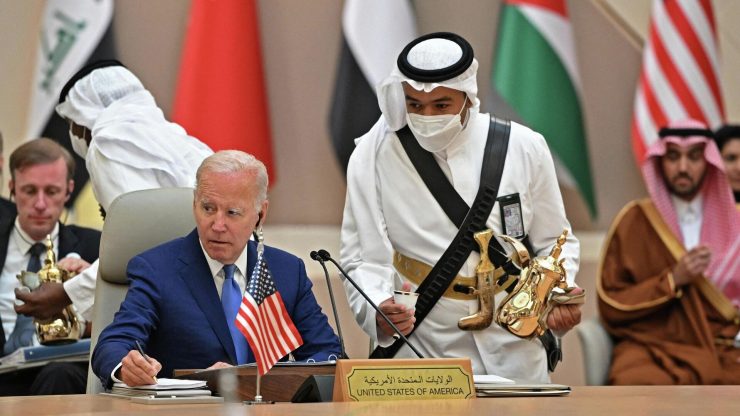
The US system of checks and balances began to disintegrate after the military situation in Ukraine erupted in February 2022. This is particularly noticeable in the energy sector. Therefore, while one-off agreements involving Qatar have partially replaced Russia’s portion of the LNG needed by Europe, the situation with Saudi Arabia remains unclear.
During his visit to Saudi Arabia in the summer of 2022, US President Joe Biden was unable to persuade the Saudis to boost oil production within the framework of OPEC+, resulting in the extension of the Russian-Saudi quotas until May 2023. Simultaneously, in March of this year, the Cooperation Council for the Arab States of the Gulf decided to reduce production in order to maintain steady hydrocarbon prices.
The recent reconciliation between Saudi Arabia and Iran, accompanied by the reopening of diplomatic relations and air travel between the two nations, sparked another wave of outrage in the United States. If the easing of the blockade against Qatar and its return to the Gulf family was regarded as a great diplomatic win for the United States, China took the credit this time. To compensate for this failure and bring Riyadh back into the lane of American foreign policy, Washington has increased interactions with representatives of the Kingdom. The Yemeni issue, namely its developments over the past year, has served as the formal reason for resuming US-Saudi engagement. National Security Adviser Jake Sullivan made the first call to Crown Prince Mohammed bin Salman, emphasizing the Kingdom’s involvement in the Yemeni settlement and referring to Saudi Arabia as “an indispensable partner for the United States in the Middle East.” The main emphasis was on the need to distance themselves from Iran, which the Americans visualize as the main danger to regional security and stability.
Republican Senator Lindsey Graham sent the similar message to the KSA, pledging the US legislature’s commitment to continuing more than 80 years of successful US-Saudi relations. Given the intense debate in Congress in January this year about the necessity to restrict arms deliveries to Saudi Arabia, the American politician’s statements seem peculiar to say the least.
However, this strategy is not new. When it’s critical to adjust its ally’s course whose direction begins to diverge from the American viewpoint, Washington typically sends out its senior representatives. However, not always peaceful tactics are used to accomplish this. For example, it suffices to recall Muammar Gaddafi and Saddam Hussein, whose eras declined when they went out of control of the Western world. Time will tell whether Mohammed bin Salman will be adaptable enough to maintain the regime’s and the Kingdom’s sovereignty.
Madi Khalis Maalouf, a political observer, exclusively for the online magazine “New Eastern Outlook.”
